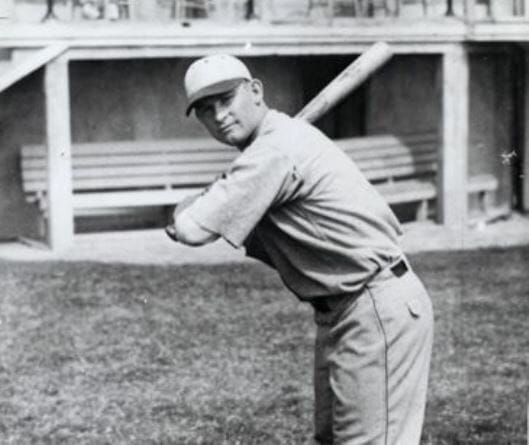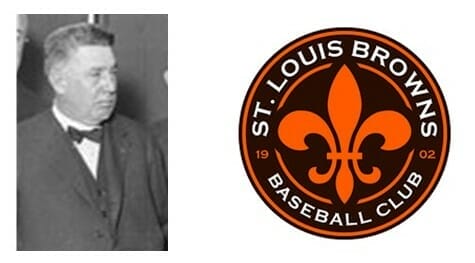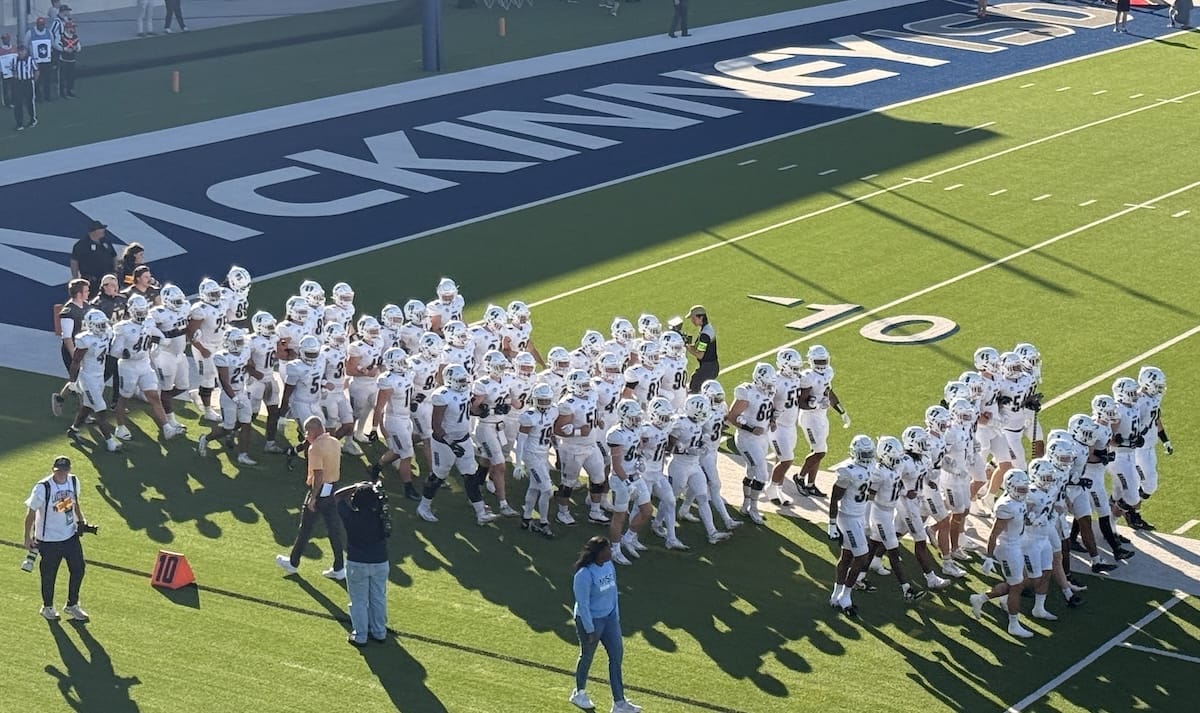

Uh oh...
It appears that you're using a severely outdated version of Safari on Windows. Many features won't work correctly, and functionality can't be guaranteed. Please try viewing this website in Edge, Mozilla, Chrome, or another modern browser. Sorry for any inconvenience this may have caused!
Read More about this safari issue.

In 1969, Curt Flood became one of the most pivotal figures in baseball history. Flood’s notoriety was not due to his performance on the field, although he was a solid outfielder with a very good 15-year career. Flood will always be best known for his challenge to baseball’s reserve clause. His fight for what he felt was his right to negotiate his salary with more than one club would make him both a crusader and a lightning rod. Ultimately, the movement Flood initiated would lead to today’s free agency market, but he was not the first to wage such a fight. Forty years before Curt Flood, Fred Bennett had fought a similar battle.
In the Roaring ’20s, Fred Bennett rode lots of buses. After being acquired by minor league Tulsa, the young outfielder moved among the St. Louis Browns’ major league club and minor league teams in Milwaukee and Wichita Falls. In September 1929, Wichita Falls sold Bennett’s contract to the Browns outright for $5,000.00 – notwithstanding the fact that the Pittsburgh Pirates had offered the minor league franchise twice that amount for the promising player. Baseball Commissioner Kenesaw Mountain Landis smelled something fishy. ~ Marquette Sports Law Journal, Spring 1999

Fred Bennett was a lifetime .300 hitter with power. He hit more than 20 home runs six times during a 14-year career. He played for 16 minor league teams and two major league teams. Despite these accomplishments, Bennett has had more significant literature written about him in law journals than in baseball history books.
The late Van Tyson, the beloved former publisher/editor of the Atkins Chronicle, knew Fred Bennett well as a teen in Atkins, Arkansas. According to Tyson, young men growing up in Atkins in the 1940s and 1950s, gave little thought to the significance of a former major leaguer living up on Northeast 2nd Street. They did, however, place great value on the fact that the Bennett’s owned the local clothing store. A graduation announcement sent to “Mr. Red” and “Miss Jewell,” as they were known in Atkins, usually resulted in a nice dress shirt. This generosity earned Bennett considerably more celebrity status in Atkins than his baseball career.

James Fred Bennett was born March 15, 1902, in Atkins, and by his early 20s, he was a local baseball prodigy. Bennett played semi-pro baseball in a Sunday afternoon picnic league called the Western Arkansas League. Fred’s bat work made Atkins a formidable club, and they brought home the league championship on several occasions.
In 1924, Bennett’s prowess at the semi-pro level earned him a shot with Muskogee in the Class “C” Western Association, where he hit .345 in 48 games. During the next three years with Muskogee and Class “A” Tulsa, he would average more than 30 homers a year with a batting average consistently in the .350 range. Compact and powerful at 5’9” and 185 pounds, Bennett seemed headed to the majors on the fast track. The fast track, however, had an obstacle that would prove difficult to maneuver for the youngster from Arkansas.

In 1928, Fred Bennett got his chance with the St. Louis Browns in the American League. In Arkansas, where everyone’s grandfather was a Cardinal fan, the Browns were St. Louis’ other team. St. Louis fans felt the same, and the Browns were seldom competitive and consequently poorly supported at the gate. Bennett was a prized prospect, too good to sit on the bench and draw a major league salary from the cash-starved Browns, but not quite ready for a starting spot. The answer was to place him in the minors, ready when the Browns needed him, but drawing a minor-league salary.
Minor league baseball in Bennett’s day was quite different from today’s system. Minor league teams “owned” players in a similar way to major league clubs. The rules protecting a player’s rights gave minor leaguers the freedom to find another team if a team retained ownership of that player for two seasons. Phil Ball, the Browns owner, had a scheme to keep Bennett from signing with another team by “selling” him to various minor league teams Ball owned. This plan kept Bennett from signing with the competition and under the Browns’ control.

In an act of defiance uncharacteristic for a young man from rural Arkansas, Bennett objected and took his case to baseball commissioner, Judge Kenesaw Mountain Landis. Landis ran pro baseball with an iron hand. A stern-faced former Federal Judge with piercing eyes and a no-nonsense demeanor, Landis was the first Commissioner of Baseball. He served in that position for almost 25 years and defined the power of the office by his decisions. Appointed by the owners in 1920 to deal with the Black Sox scandal, and given unlimited power over the game, Landis was seldom challenged.
In 1931, Landis ruled that Bennett was free to sign with any major league club because he was being “hidden” by the Browns. Ball sued the commissioner in Federal Court, but the court upheld the power of the commissioner and affirmed Landis’ right to set Bennett free. Bennett signed with Pittsburgh for $4,000 a season, a $2,500 raise from his salary with the Browns, but career-wise it was too late. He was not the same player who averaged 35 homers a year in the minors. Although just 29 years old, Bennett was plagued by injuries and played only 32 games for the Pirates before finding himself back in the minors to stay.
After 1931, Bennett never played a full season, and his home run total dwindled. Although he attempted to revive his career in the minors for seven more seasons, Bennett was finished as a major leaguer. He retired to Atkins in 1939, bought a clothing store, and became known as “Mr. Red,” the generous businessman who gave the prized graduation gifts. Fred Bennett died in Atkins in 1957. “Miss Jewell” continued to live in the large white house on 2nd Street and taught music and speech for fifty years. She died in 2002 at the age of 96.
Although Fred Bennett’s appeal for freedom to sign with the organization of his choosing was technically a success, it was an individual ruling that applied to his case only. Landis had not abolished the reserve clause; he had only released Fred Bennett. The commissioner would make similar rulings for other individuals, but no sweeping change came from the tradition of players being the property of one team. Bennett had brought the issue to national attention for the first time and created a precedent for sports law. Curt Flood moved the battle to the next level in 1969.

Curt Flood had few allies in his battle. Owners protested that allowing players to negotiate contracts in a free market would bankrupt baseball. Fans opposed Flood because they liked the idea of having their favorite player bound to their chosen team. Flood’s only support came from the work of a more resolute player’s union. Facing a united front, the owners reluctantly agreed to a free agency system that led to today’s improved salary structure. Though not around to reap the benefits from this new bargaining system or enjoy the freedom it provided, Curt Flood and Fred Bennett were greatly responsible for the unimaginable salaries today’s players enjoy.
For more stories on the history of baseball players from Arkansas, check out Jim Yeager’s page.
We do the work.
You check your email.
Sign up for our weekly e-news.
Get stories sent straight to your inbox!









Like this story? Read more from Jim Yeager
The 1951 baseball season arrived in Little Rock with little cause for...
In 1994, Hall of Famer Ted Williams was contracted to create his personal...
America’s Greatest Generation returns from WWII to lead Arkansas Tech...
Join the Conversation
Leave a Comment